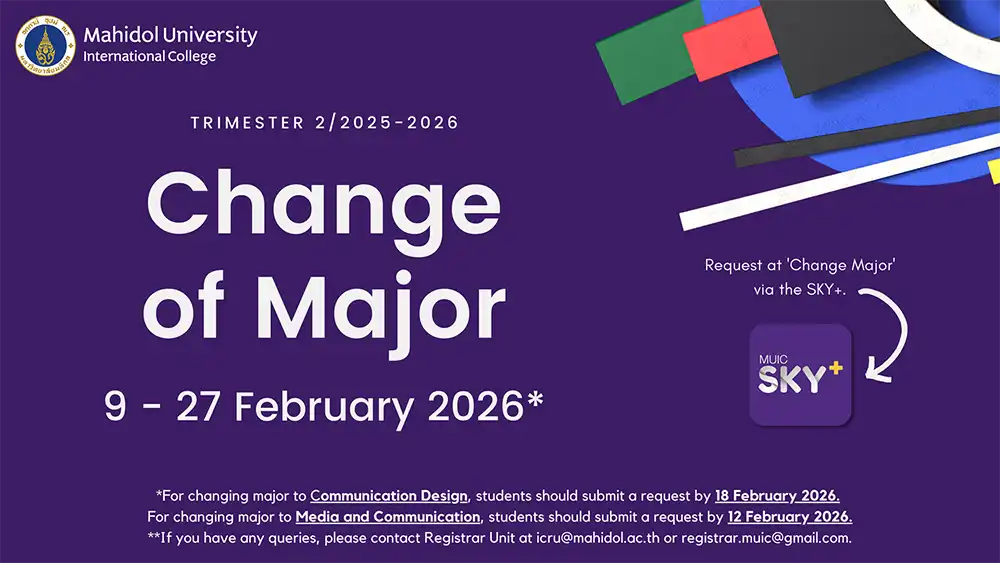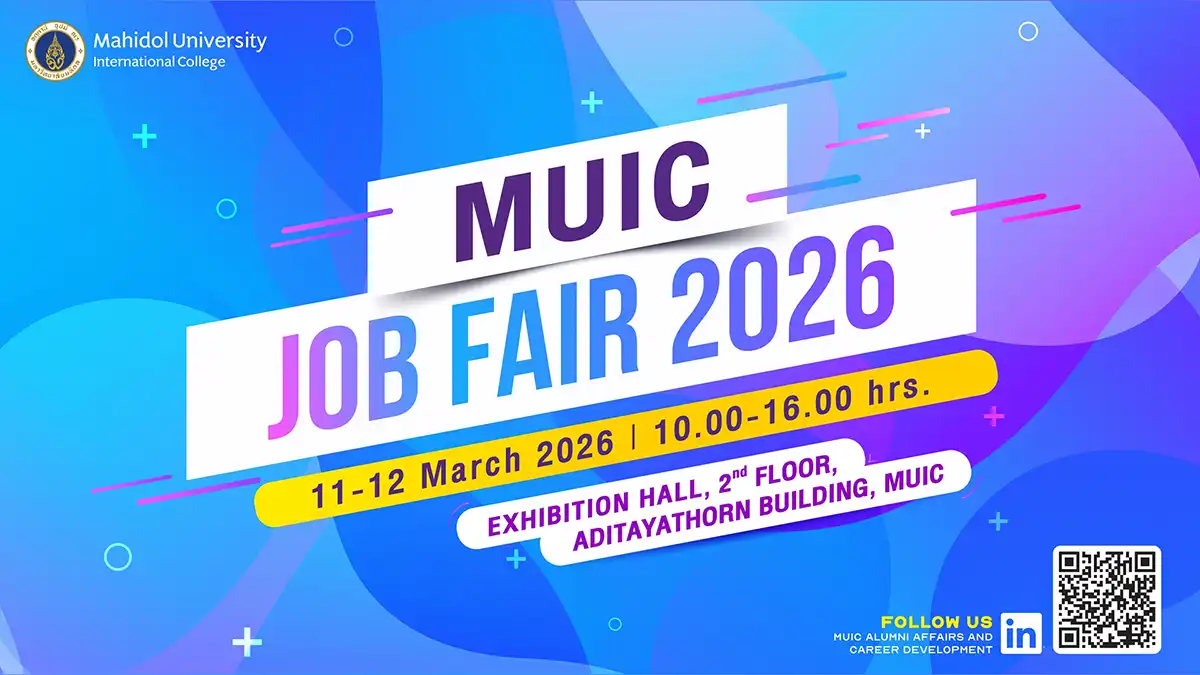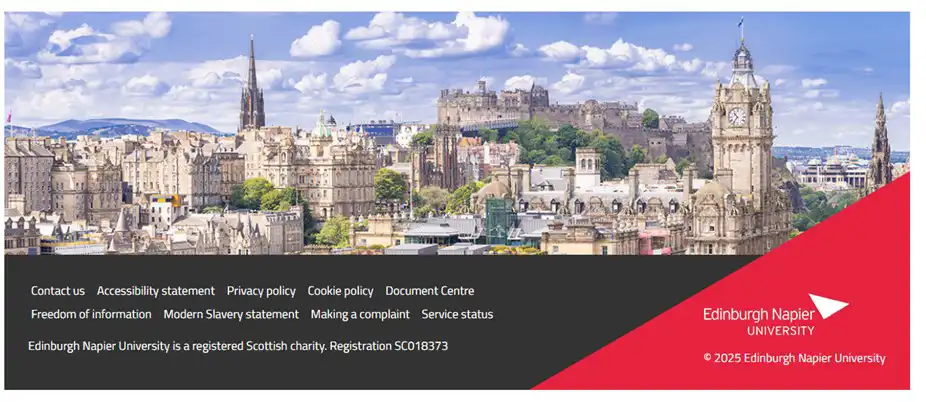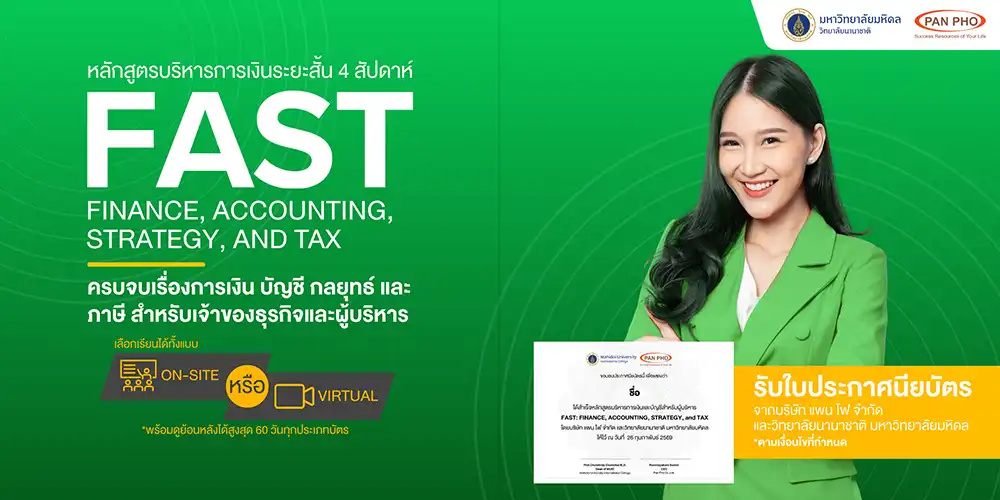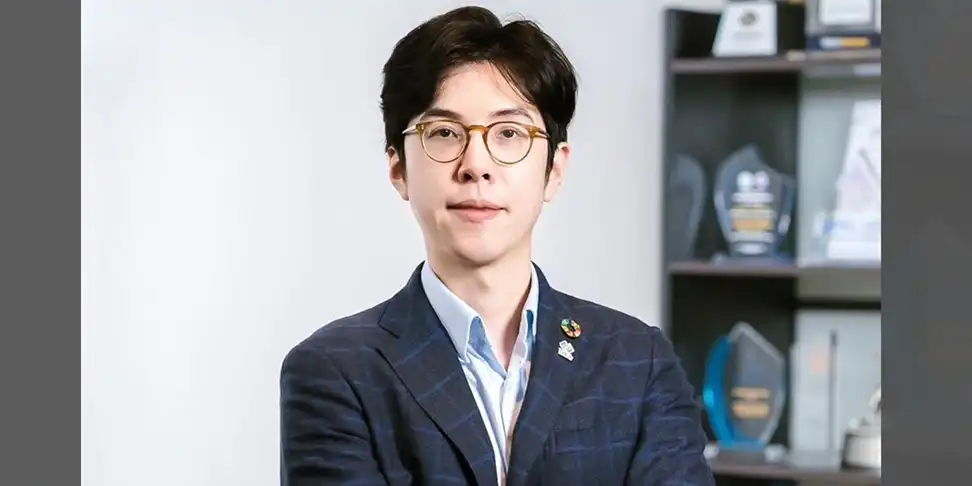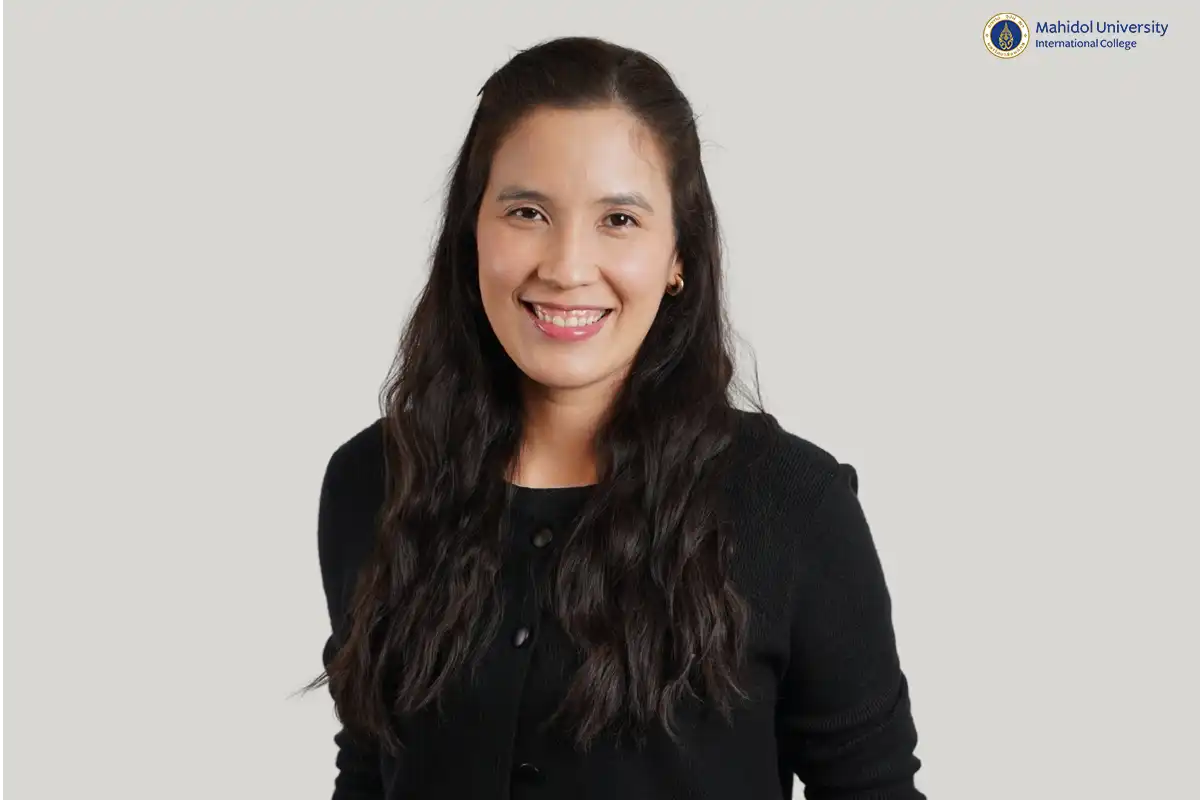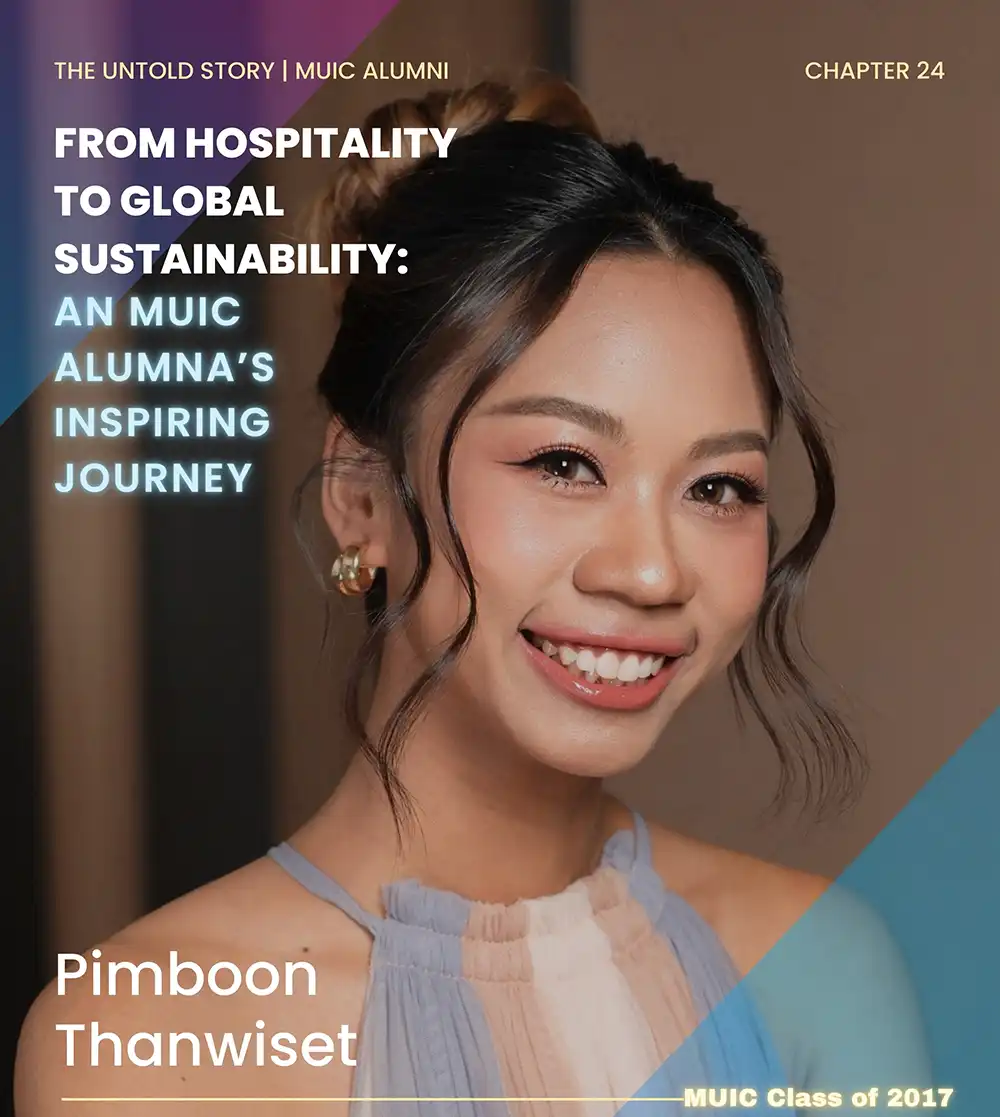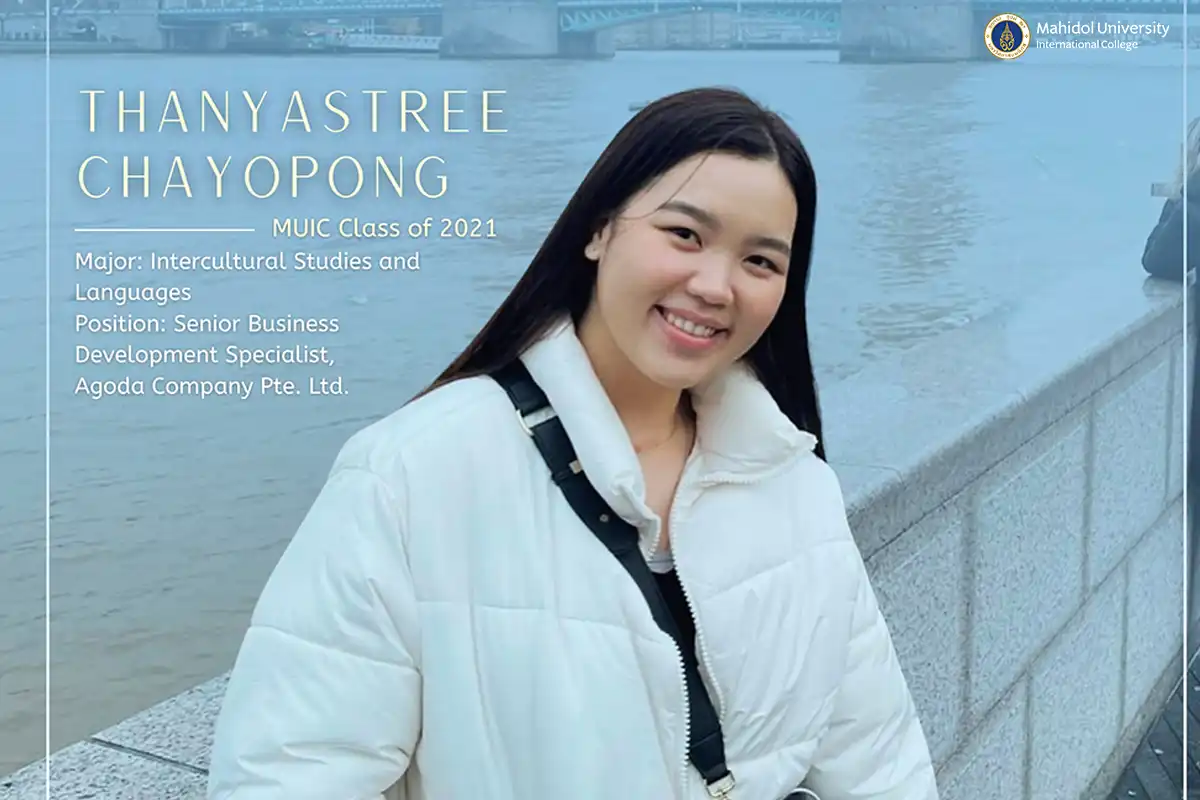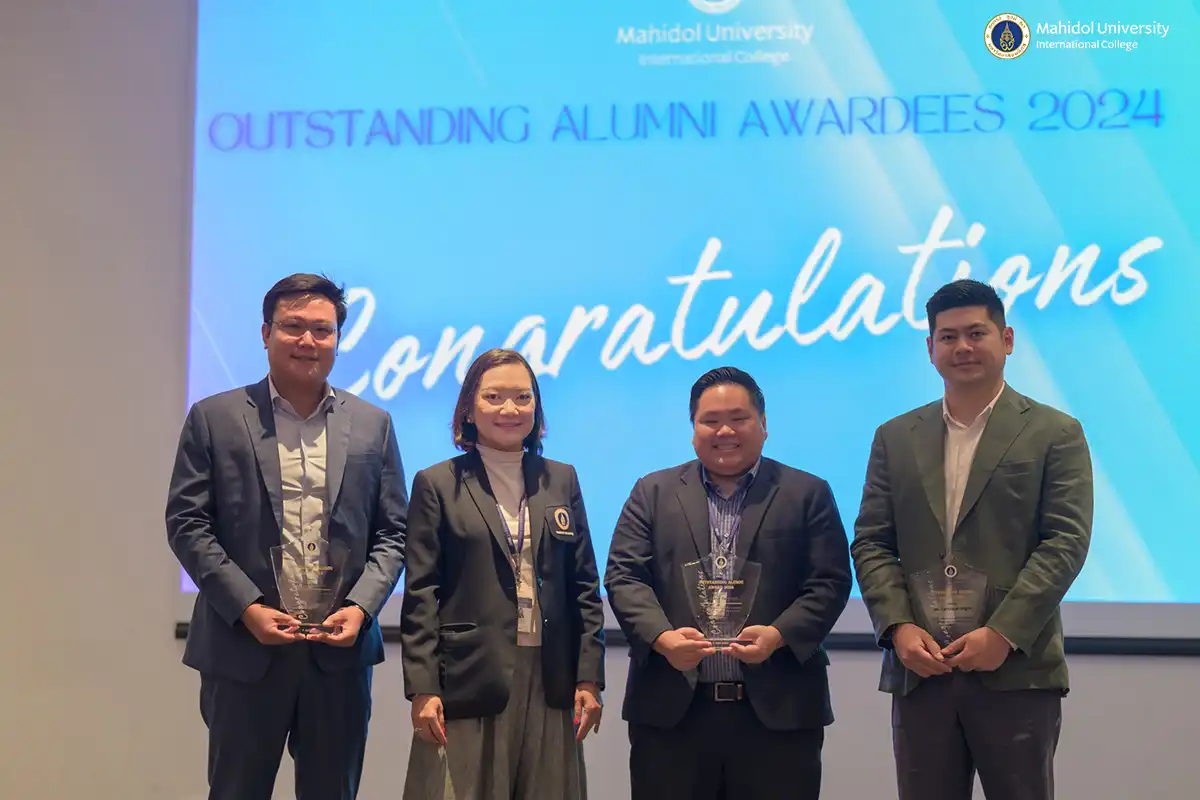Please choose a news and article category.
Recent MUIC Events
Change of major Trimester 2/2025-2026
MUIC Job Fair 2026
FAST-TRACK IELTS # 6
MUIC 360 Degrees
Lessons in Sustainability: Insights from an Environmental Advocate
December 6, 2023 2023-12-06 8:13Lessons in Sustainability: Insights from an Environmental Advocate
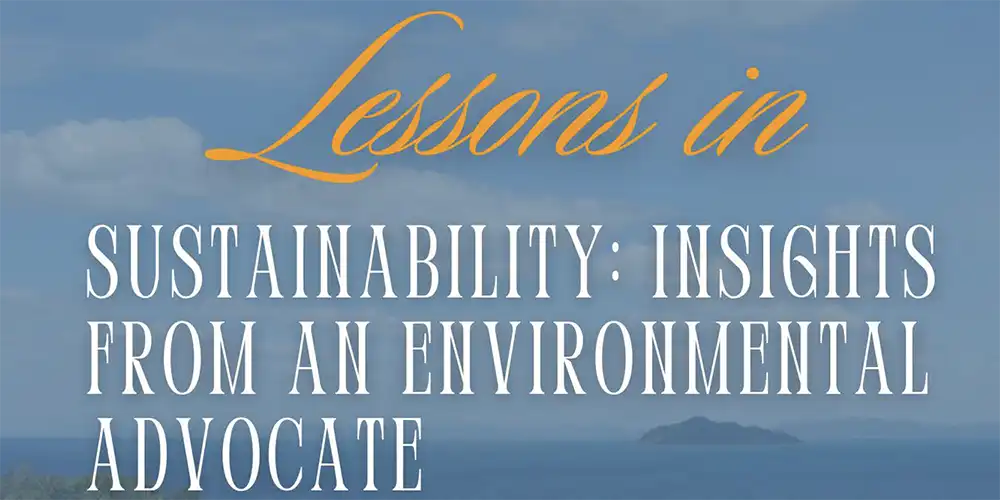
Lessons in Sustainability: Insights from an Environmental Advocate
- Please introduce yourself and briefly explain what you currently do.
I currently have two hats. Professionally, I work as the SEA Business Development Manager for Enapter. Enapter is a technological leader in innovative Anion Exchange Membrane (AEM) electrolysers, the key to sustainable green hydrogen production. Enapter is on a mission to replace fossil fuels with low-cost green hydrogen. My role in Enapter is to take care of business development activities in Southeast Asia with key showcase hydrogen projects such as the Phi Suea House project in Chiang Mai and EGAT Learning Center.
On top of that, I have a side hobby as a founder of ReCharge. At ReCharge we develop energy projects which have a positive social impact towards communities. ReCharge has now three notable projects in: Koh Jik, Chanthaburi, Koh Bulon Don, Satun and Koh Bulon Le, Satun. All of our projects currently use solar energy to electrify off-grid islands. The ReCharge approach to developing projects is to craft tailor-made energy solutions which fit the needs of the communities while empowering communities as project owners.
- What did you do after graduation? Was your first job different from your current one?
My first job after graduation was with the Energy Research Institute (ERI) at Chulalongkorn University in 2014. I was fortunate to be part of Dr. Sopitsuda’s team; we worked on solar policies and business models for Thailand, which at that time was very new to Thailand. I later joined GIZ (German Development Agency) where I worked on developing community energy projects with the Thai Ministry of Energy. This is where I got first-hand experience to explore many unelectrified island communities in Thailand. ReCharge was later founded based on the problems that I saw during the visits to these communities.
- Why are you interested in energy and the environment?
When I was 15 years old, at the time when I had to decide what I would study in university, in one road trip I got to to watch the documentary “An Inconvenient Truth.” The documentary was an eye opener for me and got me thinking about all the environmental issues which will happen in the future. I realized that environmental problems will become one of the biggest challenges for generations to come. When I learned that MUIC had an Environmental Science degree, I knew it was a perfect fit.
- How did ‘ReCharge’ project start?
ReCharge started from a university project that I and 10 other friends were working on when I was studying my Master’s degree in The Netherlands in 2018. As a team assignment, we had to work on any energy topic of our choosing. We all agreed that the team wanted to work on a real-world practical project, so I proposed to work on electrifying Koh Jik, a small fisherman island in Chanthaburi province, which we called “Koh Jik ReCharge” project. To start developing the project, I first needed to truly understand the social context of the island and the best way is to stay there and talk with the local community.
We learnt that Koh Jik already had a solar/diesel microgrid which powers the island, but they could only use 30% from solar and the rest 70% from diesel. The diesel consumption was 33,000 liters per year which cost almost 1 million THB annually. The Koh Jik ReCharge team re-designed the system with 160 new solar panels which meant that the island uses 97% solar and only 3% diesel saving approximately 900,000 THB of diesel cost. Today, the microgrid sustainably supplies clean energy to 150 households and 300 people living on Koh Jik.
However, it is not the technical details which make Koh Jik unique. Koh Jik is a one of a kind showcase for a community-operated microgrid, where the community itself is the owner and operator, responsible for taking care of system maintenance, solar panel cleaning to payment collection using smart meters.
From Koh Jik ReCharge as a university project, now we are a start-up and expanded to two other islands in Thailand using the same concept of empowering communities to sustainably solve their energy problems by themselves.
- Please share about recent challenges you faced while working on a project. How did you overcome them?
In ReCharge projects, we work closely together with communities, so a challenging aspect is to get familiar with, and gain the trust of the people in the community. This means that from the start the project team, including myself, will have to regularly visit and live with the community to understand the social situation and find out what problems the residents face. For Koh Jik alone, it probably took 20+ visits, more than 50 days on the island and countless hours during the development stage before a new system was put in place in 2022. So working on a project like this will take time and determination to make it work.
- What is your next goal/ project?
After having three island electrification projects, we are expanding to a fourth island. This project has just started and our ReCharge team is kicking off the “ReCharge process.” We are also exploring other communities in the northern part of Thailand which are off-grid because they live in mountainous areas which are hard to reach. I would like to make ReCharge become a registered social enterprise and spread our work to more communities and beyond energy topics.
- How would you describe your student life at MUIC?
MUIC was inspiring.
MUIC gave a lot of flexibility to choose what you want to do and self-build your own curriculum. Meeting lecturers and students from different fields and background made me think from different angles. Inside the classroom, I will not forget all ‘ajarns’ who do not only teach me the content but also inspire questions about life and career.
Outside of class, I won’t forget multiple late-night basketball matches during the Mahidol inter faculty basketball matches, exhausting yet memorable.
- What skills have you learned in college that apply to your career?
Over years of studying at MUIC, I have been reminded and taken with me one phrase by heart. Written on the main gates of Mahidol “True success is not in the learning, but in its application to the benefit of mankind.” – H.R.H. Prince Mahidol
Working on ReCharge projects is probably my way of putting things in action, turning ideas into projects and realizing them.
- What advice would you give to current students who aspire to follow a similar career path?
MUIC will already have done well to prepare and inspire students for their professional careers. Importantly, students should find their purpose and an aspiration for a long-term goal, it will help with focusing on a certain topic, accumulate experience and becoming experts in their own field.
- Motto
“Do or do not. There is no try” – Master Yoda
Name: Mr. Tanai Potisat
MUIC Class of 2014
Major: Environmental Science
Position: SEA Business Development Manager, Enapter / Founder, ReCharge
